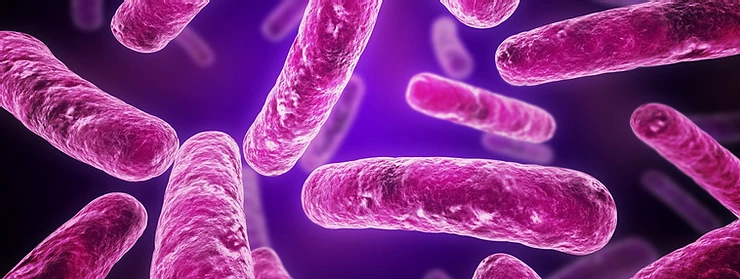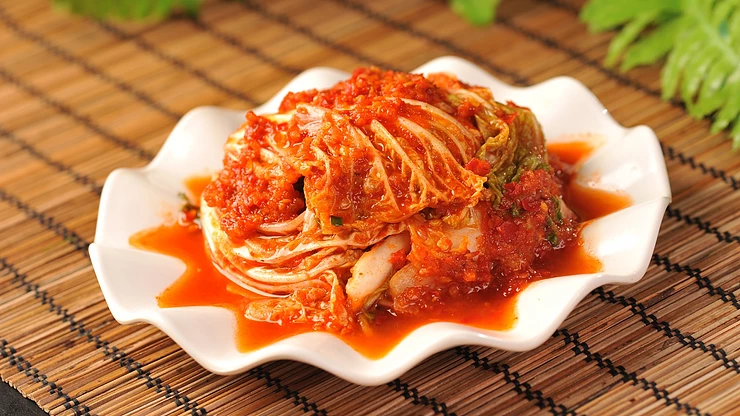Have you ever wondered what the friendly bacteria in your yoghurt or supplement really is?

You have probably heard all the hype surrounding friendly bacteria and the benefits it has on our gut health. Scientists are still discovering exactly how our gut has an impact on our wider health and
wellbeing, but we do know that friendly, or ‘good’, bacteria has a key role to play.
So, what exactly is friendly bacteria?
Next time you pick up a yoghurt that is packed with ‘friendly bacteria’, take a look at the label. It may contain Lactobacillus acidophilus or Bifidobacterium bifidum – these are common bacterial cultures that have been shown to have a beneficial effect on our health.
They’re called good or friendly bacteria because they can help restore the balance of bacteria in our gut following a bout of diarrhoea, a course of antibiotics or an episode of irritable bowel syndrome (IBS), for example.
Your gut bacteria are so important because they form a key part of the microbiome – the collective name given to the bacteria that live inside every one of us. Your microbiome is unique – a bit like your genes – and is formed from the moment you’re born. Scientists are now beginning to discover that what we eat directly impacts on the balance of our gut bacteria and, in turn, our general health.
How can I consume friendly bacteria?
Friendly bacteria are found naturally in some foods, such as kimchi, miso, sauerkraut and kombucha, a fermented tea. These foods and drinks are more popular in other parts of the world, but they are starting to grow in popularity in the UK.
Most of us are currently more likely to consume good bacteria in yoghurts, yoghurt drinks such as kefir, supplements or powders.

What happened to probiotics?
Good question! Friendly bacteria are probiotics, but a change to EU regulations in 2007 means that the word ‘probiotic’ is now considered an unauthorised health claim. The Commission felt the term ‘probiotic’ suggested that a product provided a specific health benefit, which could be misleading for consumers unless it could be proven scientifically.4
All this means is that your favourite products will stay the same, but instead of ‘probiotic’ you’ll now see the phrases ‘good’ ‘helpful’ or ‘friendly’ bacteria on the label. Which possibly sounds a lot nicer – and more beneficial – instead.
What do friendly bacteria do?
Friendly bacteria have mainly been studied for their beneficial effect on gastro-intestinal issues such as traveller’s diarrhoea, antibiotic-associated diarrhoea, IBS and inflammatory bowel disease (IBD).
But there are some new areas of research that show good bacteria may also be helpful for:
- Dental Health – it’s thought that replacing bad bacteria in your mouth with good bacteria can help protect your teeth and gums .
- Mood Boosting – a 2017 Canadian study found friendly bacteria could alleviate anxiety and symptoms of depression, most likely due to the gut-brain axis; the link between our gut and central nervous system.
- Urinary Tract Infections – taking friendly bacteria may help rebalance bacteria in the vagina and bladder, fighting infections.
Many people also take friendly bacteria to:
- Relieve symptoms of eczema
- Support the immune system
- Help maintain a healthy weight
However, there’s currently not enough clinical evidence to prove that friendly bacteria has these effects.

What to look for in friendly bacteria
Not all good bacteria foods or supplements are made the same, so you need to know how to pick the right one for you:
Does it contain enough friendly bacteria to be effective? In 2013, Italian researchers concluded that the amount for good general gut health was between 10million to 1 billion CFU (colony forming units) a day.
Will the bacteria reach your intestines intact? Many are destroyed by stomach acid before they can actually do any good in your gut.
Are you taking the right one for your symptoms? Different types of bacteria may be better for certain conditions. Talk to your GP or a specialist dietician for advice if you’re unsure.
You can help boost the good bacteria already living in your gut by eating fermented foods such as Kimchi, sourdough bread or by consuming more high fibre foods to help feed your microbiome.
Stress can also make your gut more sensitive (making IBS worse) and can lead to poor food choices that don’t feed your gut bacteria, so take steps to reduce stress levels too.
